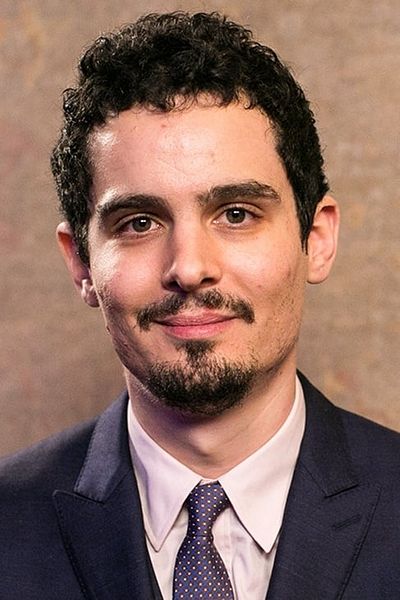A struggling musician (Ryan Gosling) and an aspiring actress (Emma Stone) fall in love in Los Angeles and, through the course of the year, their relationship blossoms to the sounds of musicals and jazz.
Two films in, there are few directors who could boast of having created some of the most memorable films of our time. From the very first scene, it's made clear that La La Land is just that - a trip through a completely idealised version of Los Angeles and the idea of dreams and aspirations. While it's easy to come at the film with a cynical viewpoint, it is so impressively directed and unashamedly romantic that it's hard not to get swept away in it all.
In fact, there's a scene early on in the film when Gosling's character talks about the word 'romantic' being a dirty word nowadays. That really does act as the crux of the film - that not everything has to be dark, grey and gritty; there can be beautiful things in the world with beautiful music, so why not show it every once in a while? However, what's so assiduous about Chazelle's direction is that he keeps it from overflowing like, say, Baz Luhrmann might. There is an incredible amount of care, thought, process and development in the film. The emotional beats throughout the film are earned and collected, but also improvisational in places. The way he commands the camera is fast, fluid and needle sharp and nothing is left to waste so that everything in the film serves a purpose.
Ryan Gosling and Emma Stone have weapons-grade charisma together and the chemistry oozes out of every scene. Nothing feels forced or contrived between them; even in the flights into musical, it all feels fluid and natural. Both Stone and Gosling imbue their songs with a deep, rich texture and emotion to them. There's not much in the way of supporting cast - apart from a slightly distracting role by John Legend and JK Simmons as a crotchety bar owner - but it all serves toward Gosling and Stone's performances, both of which are career-best. Chazelle's screenplay hands both of them more than enough depth and character to work with, but there's also a few things that he undoubtedly wants to get off his chest. For example, a screenwriter at a Hollywood party is the subject of a few jokes about "world-building" and "franchises about Goldilocks", whilst another scene has Gosling and Stone arguing over compromise and reality. That Whiplash and La La Land are both about dreamers is no mistake. Both films are a one-two punch on the same subject, but done in such completely different ways. Whiplash focused on the idea of dreams as a destroyer and that without struggle, dreams cannot be actualised. With La La Land, it's the same bit - to compromise on your dreams is to give up entirely and that there has to be a cost to getting what you want, whether it's a physical one or emotional one.
As mentioned, Chazelle's direction is pitch-perfect throughout the film and there's such deftness and craft to it that it really is breathtaking in places. From the first moment Gosling and Stone meet, we hear music and dance and when they're apart, the world grows quiet and austere. The use of art design, cinematography and music is handled so confidently that it's baffling to think that Chazelle is only on his second film. There are so few directors who would approach a subject and a genre such as this with the same kind of assuredness. The soundtrack is, of course, the jewel in the crown and Chazelle's collaboration with Justin Hurwitz works wonders throughout the film. Like the camerawork, it's done with such style, grace and intelligence that it's just a joy to take in. La La Land could be incorrectly dismissed as a pastiche of Golden Age musicals, but the blending of old and new, the use of new techniques to bring ideas to life and incorporating them into the overall framing, means that it is something entirely different.
La La Land is made with such care and love that it's hard for even the deepest cynic not to be taken away with it or for the coldest heart to melt.

















































































